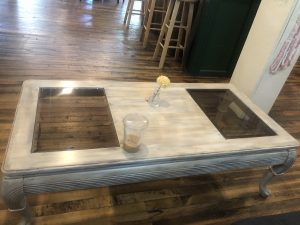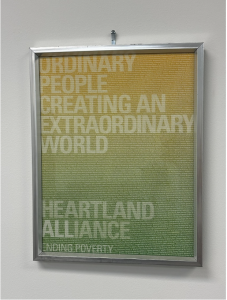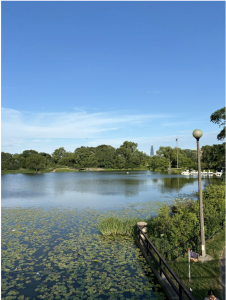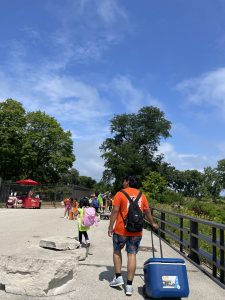 A lot of people think that I am a shy person. But really, I am just an anxious person, and that results in me thinking and rethinking through any possible implications and consequences of any actions or words before doing or saying them. And when I do not pre-think through them, I will post-think through them afterwards. Or both, which can really slow an interaction. Shockingly enough, that kind of hesitation comes across as shy.
A lot of people think that I am a shy person. But really, I am just an anxious person, and that results in me thinking and rethinking through any possible implications and consequences of any actions or words before doing or saying them. And when I do not pre-think through them, I will post-think through them afterwards. Or both, which can really slow an interaction. Shockingly enough, that kind of hesitation comes across as shy.
As I have gotten older and worked on it, this pattern of thinking and hesitation have been steadily decreasing. And this summer specifically, I have gotten to practice a new mentality surrounding social interaction that has really helped.
It started at the beginning of the summer. On maybe my second day, one of my supervisors took me to a meeting with her where she was planning an awareness event with a few other representatives of youth organizations over coffee. While I was only there to shadow, walking into a meeting like that on only my first week, I felt woefully underqualified to be there. Talk about having to think through a social interaction. I was introduced to all of the people there, who were all very nice, and they began the meeting. As they planned, I heard a bit about how each of them came into their fields, and I thought about what an odd set of circumstances that these people would wind up at the table together. An odd set of circumstances, I realized, just like the set of circumstances that brought me to the table. I started thinking, what would be so different about me that my circumstances were any less valid when I too, had the same goals? Not much. I was reminded of a phrase that I had started telling myself last semester: I belong in every room that I am in. But now, I actually had to put it into practice.
Little did I know just how many opportunities I would have to put this thought process into practice this summer. My supervisors have brought me to tag along with them to nearly all of their meetings this summer, just so I can get a feel of how Girls on the Run operates. So, in addition to learning a lot about the organization that I am working for, I have met many people and had several intensely social interactions. Each time, reminding myself of my new mantra, it gets easier to walk in thinking about why I am there rather than how I got there. And now, at the end of the summer, I have realized just how much weight this takes off of an interaction.
At the most recent meeting I went to, my supervisor took me to a luncheon packed full of people, many of whom were invited because they head up nonprofits. Walking in, though I felt significantly better than I did at the first meeting, I was still a bit uncomfortable, because confidence is a skill, not an epiphany. And this big, formal room of leaders felt like the confidence Olympics. So, I was following around my supervisor, not saying much, until we walked up to two people who were talking, and my supervisor got into a conversation with one of them, leaving me to talk to the other person. At first, the conversation was a bit strained, I was extremely conscious of being at least a decade younger than everyone else in the room, and I could not even focus the conversation on the purpose of the luncheon… because I was completely unaware of it. I could not stop thinking about the formality, and the fact that everyone was shaking hands in dresses and button-ups. But then, after my conversation partner and I had awkwardly interrupted each other by accident a few times in attempts to initiate a conversation, I glanced down and noticed that he was wearing flip-flops. For whatever reason, this immediately snapped me out of my hesitation. We both belong in this room, no matter the formality. I physically felt my shoulders relax. I apologized for interrupting to bring attention back to the conversation and I started talking and talking before my mind even gave my lips permission. Apparently, the person I was talking to was a professor, and if I enjoy talking about one thing, it is definitely school. As it turns out, so did he. Then, when the lunch part started, Professor Flip-Flops asked me if he could sit with us, and settled on my answer before he even asked my supervisor. He told her he was joining because I was “fun”.
I was floored. Never before have I been one to bring new people into a social group, and certainly never before has my first impression on someone been that I am a “fun” person… usually not even my third impression. This made me realize that the practice that I have been doing this summer has really helped: I went from being intimidated by a small coffee-get-together to hyping myself up during a large luncheon. This skill is still, obviously, a work-in-progress. One does not go from being nervous in a one-on-one social interaction to being comfortable in any social interaction in one summer. But I am a little better at it than before, and I have found that my new reminder is very helpful for me.
- By Katherine Naylor, Girls on the Run
 Over the course of this summer and my internship at Erie House, one thing has became ever more clear to me each time I wake up and head to work: any number of individually insignificant factors can decide whether or not it’ll feel like a good day. For example, it could be cloudy but not raining, my bus is on time, and I have an extra minute to grab coffee before I clock in. That’s already a good day. Just as much, if it’s raining without an umbrella, both of my bus rides get delayed, and I have to show up twenty minutes late, that’s kind of a rough start.
Over the course of this summer and my internship at Erie House, one thing has became ever more clear to me each time I wake up and head to work: any number of individually insignificant factors can decide whether or not it’ll feel like a good day. For example, it could be cloudy but not raining, my bus is on time, and I have an extra minute to grab coffee before I clock in. That’s already a good day. Just as much, if it’s raining without an umbrella, both of my bus rides get delayed, and I have to show up twenty minutes late, that’s kind of a rough start.
 Today is my last day of my CAPS summer fellowship at Heartland Alliance. I look around the office. It’s quiet, a normal Friday morning as people mostly elect to work remotely before the weekend. Regardless, while everyone goes about their day, I sit here reflecting on some of the things I have learned this summer about both the work I have gotten to be a part of in refugee resettlement and as part of a non-profit at large in Chicago, IL.
Today is my last day of my CAPS summer fellowship at Heartland Alliance. I look around the office. It’s quiet, a normal Friday morning as people mostly elect to work remotely before the weekend. Regardless, while everyone goes about their day, I sit here reflecting on some of the things I have learned this summer about both the work I have gotten to be a part of in refugee resettlement and as part of a non-profit at large in Chicago, IL.
 ‘I don’t know.’: the response that never feels good enough. Whether it is an answer to what you want, why you started, or what you plan for the future, few leave a conversation satisfied when you say ‘I don’t know’. But I, personally, don’t know a lot of things. I am a very indecisive person; I like to do a lot of things, and I don’t mind doing a lot of things, so, while some people might call me a people pleaser, I would say I’m just really adaptable. I want what others want because I would be content with either.
‘I don’t know.’: the response that never feels good enough. Whether it is an answer to what you want, why you started, or what you plan for the future, few leave a conversation satisfied when you say ‘I don’t know’. But I, personally, don’t know a lot of things. I am a very indecisive person; I like to do a lot of things, and I don’t mind doing a lot of things, so, while some people might call me a people pleaser, I would say I’m just really adaptable. I want what others want because I would be content with either. A lot of people think that I am a shy person. But really, I am just an anxious person, and that results in me thinking and rethinking through any possible implications and consequences of any actions or words before doing or saying them. And when I do not pre-think through them, I will post-think through them afterwards. Or both, which can really slow an interaction. Shockingly enough, that kind of hesitation comes across as shy.
A lot of people think that I am a shy person. But really, I am just an anxious person, and that results in me thinking and rethinking through any possible implications and consequences of any actions or words before doing or saying them. And when I do not pre-think through them, I will post-think through them afterwards. Or both, which can really slow an interaction. Shockingly enough, that kind of hesitation comes across as shy.